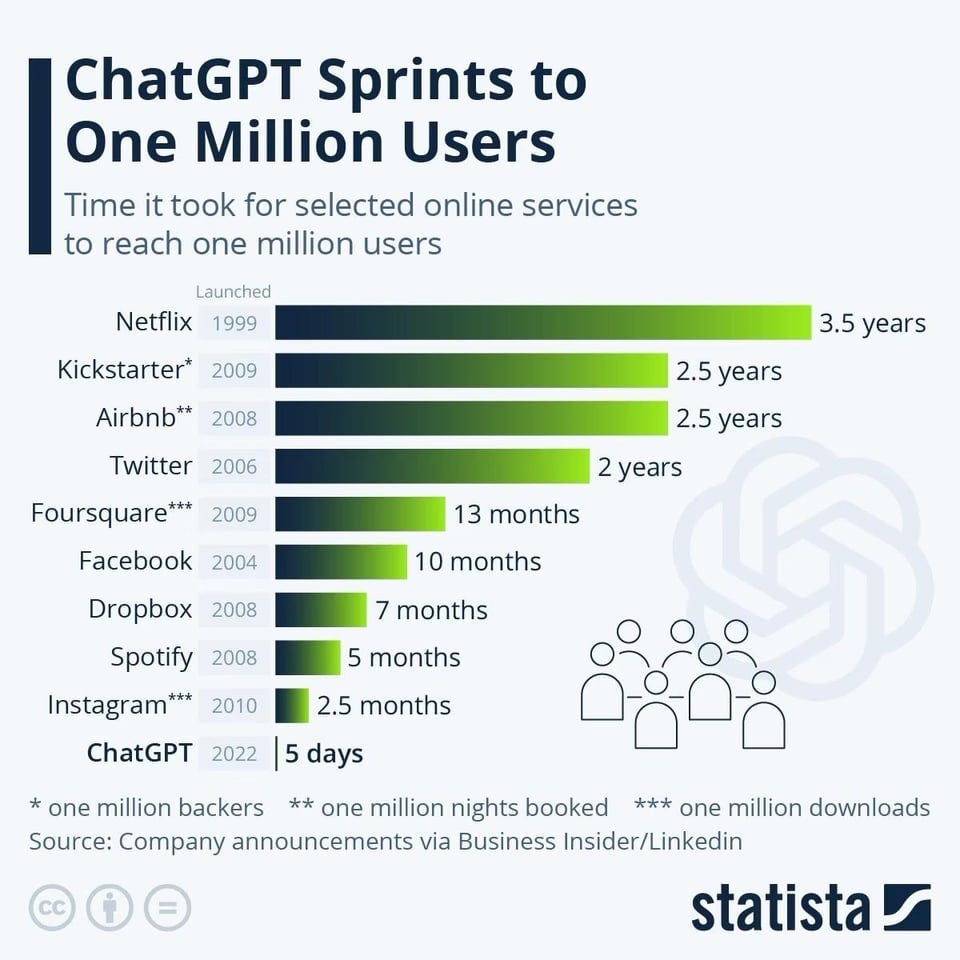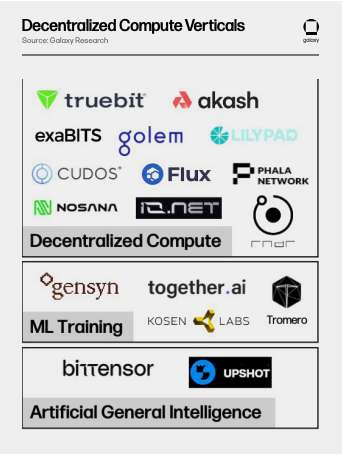Decentralizing Compute: Tackling the AI Demand Surge with Blockchain
Blockchain-powered decentralized compute solutions are emerging to provide on-demand, competitively priced compute resources, addressing shortages in the market.
In a previous UETH Blog, When Giants Collide: Exploring the Convergence of Crypto x AI, we covered the synergy between AI's capabilities and blockchain's decentralization is set to transform industry practices and reshape the market landscape. In this follow-up, we expand on a critical intersection within this convergence: decentralized compute. Based on our recent workshop Building Decentralized AI ft. John Arrow of FreedomGPT, this blog dives into how decentralized computing frameworks are emerging to provide on-demand, competitively priced compute resources to address shortages in the market:
The exponential growth of AI has dramatically increased the demand for advanced GPUs, leading to a significant shortage in the market.
This shortage of compute has spurred decentralized solutions to sublease excess capacity to offer competitively priced, on-demand computational resources.
By using blockchain to coordinate decentralized AI computing networks, initiatives like FreedomGPT reduce reliance on centralized entities, fostering a more equitable AI landscape.
The GPU Crunch: Navigating the Surge in AI Compute Demand
The demand for GPUs has skyrocketed due to the rapid advancement and adoption of AI technologies. Within just two months of its launch, Chat GPT was estimated to have reached 100 million monthly active users. The surge of consumer demand, combined with the compute required for training better models, has significantly impacted the availability of advanced GPUs.
As a result, high-performance GPUs have become invaluable assets across numerous industries, with the current lead time for Nvidia’s H100-based servers predicted to be between 36 to 52 weeks, highlighting a critical supply shortage. This GPU demand has forced companies into long-term contracts, often locking in more computing power than necessary and leading to resource inefficiencies. This situation emphasizes the potential benefits of decentralized computing solutions facilitated by blockchain technology, which can offer a more adaptive and efficient compute resource market.
The Value Proposition of Decentralized Compute
Decentralized compute systems address inefficiencies in the GPU market by establishing a secondary market where owners of compute can sublease their excess computing capacity in real time. For example, an individual with a high-performance gaming PC or a small business with underutilized server capabilities can offer their surplus processing power to others, mitigating supply constraints and minimizing resource wastage.
Coordinating this excess supply through blockchain technology ensures that compute resources become nearly cost-free. This pooling of resources not only offers competitive pricing, but also enhances accessibility to computational power, while paying network participants for sharing their excess compute.
Beyond offering competitive pricing and improved accessibility, another core advantage of decentralized compute is its capacity to prevent censorship. By distributing control over computational resources, these systems ensure no single entity can impose its norms and values on AI models, preventing large corporations from monopolizing the AI landscape.
FreedomGPT: An Example of Decentralized Compute for Inference
FreedomGPT's transformation from a Web2 company to a pioneer in decentralized AI compute showcases blockchain's role in addressing major industry challenges. Originally launched to provide an uncensored, private AI model, FreedomGPT encountered resistance from traditional compute providers due to its commitment to uncensored AI responses. This often resulted in the company being deplatformed, highlighting the vulnerabilities inherent in relying on centralized compute resources.
Confronted with these challenges, FreedomGPT was propelled to innovate beyond the conventional frameworks. John Arrow, Co-Founder of FreedomGPT, described the move towards a decentralized compute network as essential not only for ensuring operational continuity, but also for upholding the company's foundational principles of freedom and privacy. To facilitate a decentralized computing network, FreedomGPT introduced the Freedom Network Token, or $FNT, rewarding participants who contribute unused computing power for AI inference tasks.
With nearly 1 million desktop downloads and a user base of 2 million, FreedomGPT's $FNT token incentivizes users to share their excess computing resources. In this decentralized framework, global users voluntarily contribute their unused computational power, enabling FreedomGPT to perform AI inferences across its network rather than depending on centralized servers. This system rewards node operators, establishing a self-sustaining ecosystem that addresses compute shortages and promotes a more open and equitable AI development landscape, free from monopolistic control.
Looking Ahead: The Challenges and Opportunities of Decentralized AI Compute
As decentralized compute networks like FreedomGPT advance, they are navigating the complexities of balancing GPU supply and demand. Amidst a GPU arms race—exemplified by OpenAI's temporary limitations due to shortages—these networks are uniquely positioned to highlight their advantages: cost-effectiveness, resistance to censorship, and enhanced accessibility. FreedomGPT is just one of several pioneering projects in the decentralized compute verticals, each contributing to a burgeoning ecosystem:
Source: Galaxy Research
The coming year is pivotal for these platforms to establish a robust user base and underscore their value over conventional data centers. As these projects increasingly showcase the tangible benefits of decentralized computing, there is growing confidence in blockchain’s potential to transform AI development, making it more accessible and equitable for everyone.
Get Involved
Watch the full Workshop + student Q&A here.
Engage with @JohnDavidArrow and @realFreedomGPT on Twitter 💬
Visit the FreedomGPT website and learn how you can join the decentralized compute network and earn $FNT!
Check out this curated reading list:



